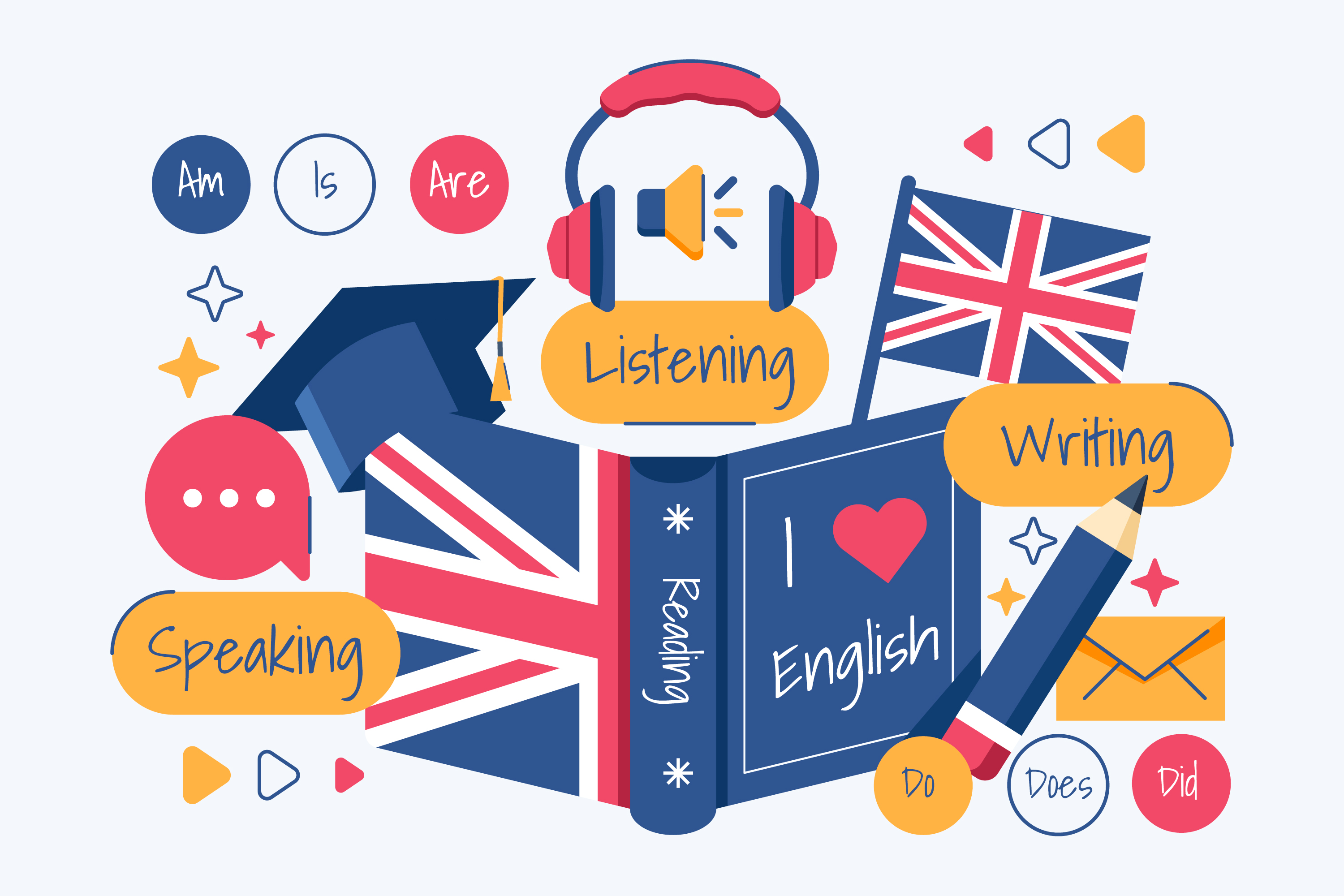If you are a bilingual international student whose first language is not English, then IELTS is one of the most important tests that you will take. Not only is it necessary to show your level of English proficiency, but for many, it will also serve as a stepping stone towards improving overall communication skills.
There are four components in the test, and getting individual high scores in each of those will allow a combined high overall band score. Although the test might sound intimidating at first, with the proper tips and tricks, you can easily score high if you work smartly enough!
IELTS Test Format
There are two options for the IELTS examination: IELTS Academic and IELTS General Training. Usually, for studying in an English-speaking country, IELTS Academic is preferred whereas for work or immigration, IELTS General Training is recommended. However, it is noteworthy that both assessments are graded the same.
The IELTS exam comprises four main sections:
-
-
Reading: This part assesses your reading skills by presenting you with passages and questions related to them. You need to find information, identify the main ideas, and understand the writer's opinions.
Time Duration: 1 hour or 60 minutes
No. of Questions: 40
-
-
Writing: In the writing section, you will be required to complete two tasks. Task 1 involves describing visual information, and Task 2 requires you to write an essay on a given topic. This section evaluates your written communication skills.
Time Duration: 1 hour or 60 minutes
No. of Questions: 2
-
Speaking: The speaking test consists of a face-to-face interview with an examiner. You will engage in a conversation, express your opinions, and answer questions on various topics.
Time Duration: 11-14 minutes
No. of Questions: Interview
Understanding the format of the IELTS test is crucial for effective preparation, as it allows you to tailor your study efforts to each section's requirements.
IELTS One Skill Retake
IELTS One Skill Retake offers a fresh approach to enhance your performance and demonstrate your English proficiency more effectively. This feature allows you to retake just one specific section of the test, whether it is Listening, Reading, Writing, or Speaking, enabling you to concentrate on areas where improvement is needed, without having to retake the entire test.
Here's how it works:
-
Begin by taking your initial test on the scheduled day.
-
After receiving your scores, if you are not satisfied,
-
You can opt for IELTS One Skill Retake.
-
Ensure you complete the IELTS One Skill Retake within 60 days of your original test date. This way, you can fine-tune your skills and aim for better results in the specific areas you need.

Tips to Help Ensure Improved IELTS Scores
Here are some suggestions for use when you are preparing to take the test -
1. Gauge Your Current Skill Level
Whether you come from a city or a small village, it is crucial for you to determine where your current skill level can take you. If possible, take a few practice mock tests—you can self-test using past question papers, or enroll in an IELTS preparatory class to sit for the mock tests only. When you know what your scores are, you will be able to understand how to best employ your efforts to ensure optimal test scores.
2. Be Time-Efficient and Remain Calm
A couple of common challenges for new test-takers include time management and staying calm. Practice at home with less time than the real test to build resilience. Do not fret if a question seems tough; skip it and return later. Time is precious, so stay focused and make every second count. With practice, you will handle the test like a pro.
3. Listen Carefully and Highlight Keywords
During the listening test, you will get separate answer sheets. To help remember answers, jot down keywords. Be aware that British English differs from what we often hear in movies or songs. Today, the test may have various accents, so use the time before listening to skim questions and underlining keywords. This will make finding answers easier during the recording as important details will stand out.
4. Skim, Scan, Annotate and Outline
To excel in your IELTS journey, you will need vital skills. Speed reading is key—scan passages, underline keywords, and save time. For writing tasks, use specific buzzwords for clarity, like "trend analysis." Organize your essay ideas coherently, keep sentences short, use unusual words wisely, and structure it with an intro, body, and conclusion. Stick to word limits, aiming for just a slight deviation, and you'll be on the path to success.
5. Present Opinions and Ideas with Clarity of Vision and Confidence
Even if your writing skills are strong, thorough preparation is crucial for a great test score. In the writing module, be sure to respond clearly to the examiner's prompts, even if you do not necessarily agree. Polite persuasion with a clear direction is key. For essays, consider presenting both sides before making your choice and explaining why. For instance, when discussing social media's impact on life, explain whether it's a blessing or a curse and why you believe so. This approach ensures a well-rounded response.
Ideally, the body of your essay should have three sections:
-
Reasons why living in the age of social media could be a blessing
-
Reasons why it could be a curse
-
Which side you choose, and why
6. Speaking Can Be Your Best Friend
For many non-native English speakers, tackling a test with spoken segments can be intimidating. Yet, with the right strategies and ample preparation, conquering English oral exams becomes manageable. The IELTS Speaking module consists of three parts: personal questions, a short speech, and a discussion. To excel, practice is key. Utilize resources like YouTube tutorials, Cambridge IELTS books, and mock tests from organizations like the British Council, Enhance English Bangladesh, and more. Don't hesitate to explore online tools and guidebooks. Above all, confidence is your ally. Believe in your abilities, and this English language test will lose its daunting aura.
Conclusion
While there are several other tests to prove your English language proficiency for university or visa applications, it is vital to carefully consider the formats and required minimum scores of those tests before making a decision. IELTS is usually a more convenient choice for international students due to its widespread availability at nearby test centers.
If you are gearing up for IELTS exams and want to boost your chances of success,
Enhance English Bangladesh is here to help! They offer practice tests for both exams, allowing you to refine your skills and receive expert feedback on your answers. Additionally, they can assist you with hassle-free registration for the actual IELTS or PTE exams.
So start your preparation today and do not hesitate to reach out to PFEC Global Bangladesh at 096 09 800 300 (Dhanmondi), 096 09 800 700 (Banani), 096 09 800 400 (Chittagong), every Saturday to Thursday from 9:30 AM to 5:30 PM, if you have any inquiries!
Frequently Asked Questions (FAQs)
How can I improve my IELTS fast?
Answer: It is possible to improve IELTS scores fast by - understanding grammar, focusing on vocabulary, taking expert help, and lots of practice.
Can I retake IELTS writing only?
Answer: Yes, you can retake IELTS Writing alone using the IELTS One Skill Retake feature to boost your score.
How can I get an 8 in IELTS reading?
Answer: To get an 8 in IELTS reading, one needs to aim to answer about 36 out of 40 questions correctly (around 90%).
Can I get a full scholarship with IELTS?
Answer: Yes, scholarships based on IELTS scores are available at certain universities for international students.
Can IELTS academic be used instead of general IELTS?
Answer: No, IELTS Academic cannot replace IELTS General for migration, but it is suitable for those considering study or work.


